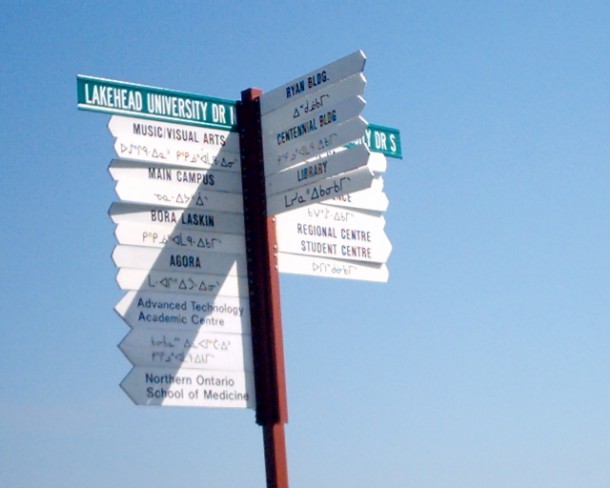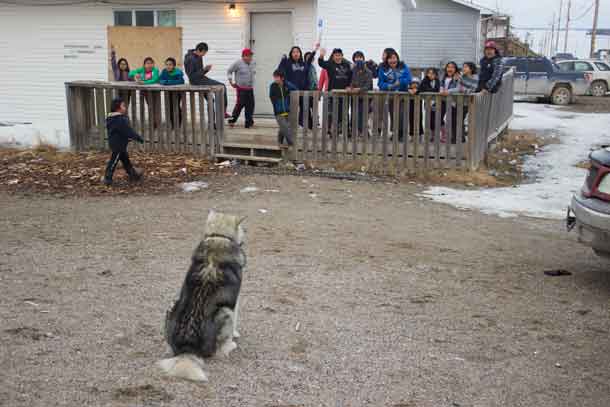THUNDER BAY – Conventional wisdom is in constant battle with ignorance acquired by default or design. When combined with experience and evidence, wisdom suggests that acquring an education creates opportunities well beyond inate ability and talent alone. Imagine the possibilities when talent, ability and education combine – even in this contemporary “economy of persuasion” as Alvesson calls it, “where firms and other institutions increasingly assign talent, energy, and resources to rhetoric, image, branding, reputation, and visibility.”
The 2014 Nobel Prize for Peace was awarded to Malala Yousafzai of Pakistan. Owing to the paleolithic ignorance of Taliban terrorists, the young Pakastani teenager was gun shot for daring to go to school. In awarding the Peace Prize, the Nobel committee Chairman said that education, especially for young girls, terrifies the Taliban because knowledge is a condition for freedom. There is little wonder why Nelson Mandala cited education as the most powerful weapon which one can use to change the world.
Although involved in a broad number of national and local social advocacy activities (the Friendship Centre movement, Beendigen, the Quebec and Ontario Native Women’s Associations, etc.) during her lengthy professional career, Beverly has spent the better part of it as an educational counsellor and senior educational administrator in post-secondary institutions. Despite an initial struggle in high school with Caucasian school curricula, she went on to acquire her GED and three university degrees, the most recent from one of the most prestigious universities in the country – all the while raising and nurturing a family. Her belief in the importance and power of education to create conditions where personal freedom can flourish – freedom from want and dependency and the steely bonds of poverty, have hallmarked her work.
Her dedication and the work of hundreds of other Aboriginal educators across the country have created a new generation of young professionals many of whom are dedicating their careers to bettering the often sorry lot of Aboriginal Canadians squalloring in Third World conditions in one of the richest countries in the world.
The proof is in the educational pudding. We recently had the exciting opportunity of coordinating a national Aboriginal literature and literacy project with noted Aboriginal author and playwrite Tomson Highway. In interviewing for a project research assistant, we noted that 11 of the 12 candidates were Aboriginal post-secondary students in Thunder Bay and half of those were pursuing graduate degrees. Twenty years ago, we would have been lucky to have one candiate to interview.
At Lakehead University where Bev was the Vice Provost of Aboriginal Initiaitves, she and her staff worked diligently to create the conditons necessary to attract, retain and graduate Aboriginal students. Foremost among these conditions are the creation of choices permitting students to follow culturally-appropriate curricula and the provision of necessary support systems to assist Aboriginal students to adapt to what is essentially an alien culture, despite the homongenizing affects of the media and X-Box! She retired from the university having established a $5,000 bursary in her name to encourage Aboriginal women to pursue a post-secondary degree.
Of course, there is a Catch-22 in all of this, an ultimate paradox which pits the survival of community against the argument for higher education. More often than not, First Nations’ students who wish to escape the limiting economic confines of the reserve and chase a post-secondary degree will rarely return to the reserve to seek employment due to the almost complete absence of opportunity. This is particularly the case with remote communities. Those living on reserves located adjacent to a major urban centre or near a major transportation thoroughfare like the Fort William First Nation or the much touted Chief Louie’s Osoyoos Band offer the desirable combination of living “at home” and being able able to put their degree to work in a field of their choosing. Not so, for distant, remote First Nation communities. This then begs the question: Are remote First Nations communities being drained of the brightest and the best? In more ways than one, the answer forces one to explore the future viability of these communities. This is uncomfortable territory indeed.
If you are denied an education, or choose not to acquire one, you are condemned to learn only from the hindsight of experience rather than the foresight of dreams and expectation. The wisdom eventually gained from experience does break the bonds of ignorance. Regrettably, it usually takes a life time to acquire it!
Beverly Sabourin, recently retired as the Vice-Provost of Aboriginal Initiatives at Lakehead University, is a member of the Pic Mobert Ojibwe. Peter Globensky is a former senior policy advisor on Aboriginal Affairs in the Office of the Prime Minister and recently retired as CEO of the Canadian Council of Ministers of the Environment. They invite your comments at basa1@shaw.ca







